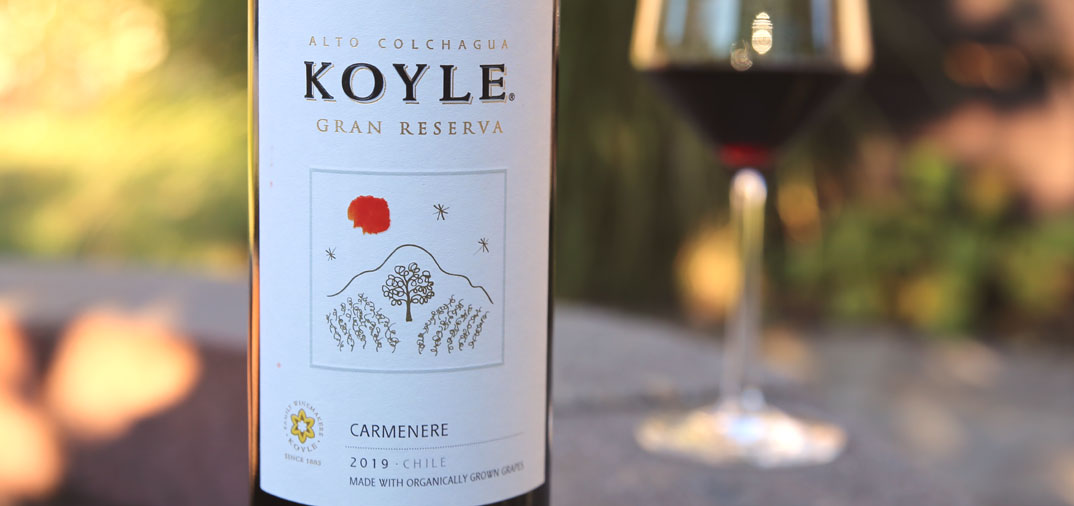 4.5
4.5 Review: Koyle Gran Reserva Carmenere
Carménère is a grape with a great story. It was one of the original six grapes permitted in red Bordeaux wines. Then it was thought to be extinct, after phylloxera wiped out most of the vineyards in Europe in 1867. But then in the mid-1990’s Carménère was rediscovered growing in Chile, where it had been incorrectly identified as Merlot for generations.
When I first heard this story, I was enthralled and excited to taste this newly rediscovered grape variety. My excitement, however, was quickly followed by disappointment as many growers didn’t yet know how to properly work with Carménère. It’s a grape that tends to have high levels of pyrazines, compounds that can impart a green pepper flavor to wine, particularly when the grapes are harvested before they’re fully ripe. A little bit of it is OK, but if the pyrazines are too strong it doesn’t make for an enjoyable wine. And many of the early examples of Carménère that I tasted suffered from this condition.
Fortunately, most growers have figured this out and it’s now less common to come across a Carménère where the green pepper notes are out of balance. In fact, there has been a maturing of the wine industry in Chile in many ways.
When I first started writing about wine, back in 2007, Chile was one of the first regions to draw my attention — mostly due to the exceptional value coming from the region. At that time, the region was well into its rebirth and revitalization. Growers were restoring neglected vineyards, wineries were building new facilities and winemaking talent in the region was burgeoning. It has only gotten better since then.
Today, the Chilean wine industry is also a leader when it comes to sustainability. In 2011, Chile formally established a sustainability certification program called the Sustainability Code for the Chilean Wine Industry (SCWI). It’s a program that has 351 different sustainability requirements across four categories: viticulture, vinification & bottling, social and wine tourism. Over 80% of the wine exported from Chile comes from producers certified through this program.
Koyle Family Vineyards
The wine I’m reviewing today comes from one of the producers who participates in the SCWI program, Koyle Family Vineyards. In addition to being SCWI certified, Koyle (pronounced KOU-lay) follows organic and biodynamic farming practices. They started their conversion to biodynamics in 2009 and are certified biodynamic by Demeter.
Koyle has a few different vineyards in Chile. The grapes for this Carménère come from their Los Lingues Estate vineyard, at the foothills of the Andes Mountains in Colchagua Valley.
In addition to Carménère, small amounts of Tempranillo and Petit Verdot are added to this wine, which result in a noticeable richness.
Tasting Notes
Aromas of raspberry, plum, cherry, white pepper and cedar give this wine a pleasant and dynamic nose. On the palate this wine is delightful, delivering bright tart cherry, raspberry, cranberry and plum flavors with vibrant acidity and a nice, velvety texture. The finish is long with lingering red berry flavors.
Wine: Koyle, Gran Reserva Carménère
Varieties: 85% Carmenere, 9% Tempranillo, 6% Petit Verdot
Vintage: 2019
Alcohol: 14%
Rating: 90
Average price: $17.00
Disclosure: This wine was received as a media sample.










